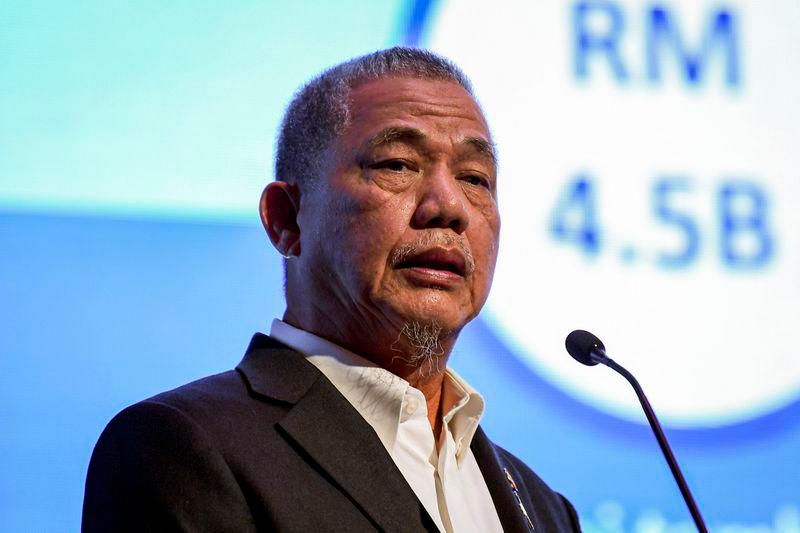KUALA LUMPUR: Increased investment in water technology, research, and skills development can position Malaysia as a centre of excellence in this sector, says Deputy Prime Minister Datuk Seri Fadillah Yusof.
Fadillah, who is also the Minister of Energy Transition and Water Transformation (PETRA), highlighted that this approach would not only attract foreign investments across various sectors but also created quality job opportunities for Malaysians.
“Aligned with this ambition, Malaysia will become a global reference hub in research and development (R&D), innovation, and talent development,“ he said at the launch of the Water Sector Transformation 2040 (WST 2040) at the Malaysia International Trade and Exhibition Centre (MITEC) here today.
Also present were Deputy Energy Transition and Water Transformation Minister Akmal Nasrullah Mohd Nasir, PETRA secretary-general Datuk Mad Zaidi Mohd Karli, and Academy of Sciences Malaysia (ASM) president Datuk Dr Tengku Mohd Azzman Shariffadeen.
The WST 2040 is a national agenda aimed at transforming the water sector into a sustainable economic driver, ensuring a quality water supply and advancing the fields of science, technology, innovation, and the economy (STIE).
Fadillah said that according to the World Bank, a sustainable and secure water supply was essential to support industrial operations and ensure business continuity.
“In efforts to attract more foreign investment, water supply security is a crucial factor. Efficient water management not only supports domestic economic growth but also plays a vital role in keeping Malaysia competitive in the eyes of international investors,“ he said.
Moreover, Fadillah said that WST 2040 had significant potential to position Malaysia as a major water sector hub for developing countries and the ASEAN region by 2040.
Therefore, he urged all parties to change the perception of water as merely a public resource, as it held substantial potential for generating national income if managed efficiently.
As a comparison, he said, the energy and energy-intensive industries currently contributed about 28% to the Gross Domestic Product (GDP) and 25% of the total workforce, while the contribution from the water sector was far lower and still couldn’t be precisely calculated.
“Energy has been recognised as a strategic national commodity, but the importance of water supply must also be regarded as equal to energy, as water is the lifeblood of every aspect of economic development.
“Currently, a large portion of water-related projects is still funded by the government, so to ensure the sustainability of this sector, there must be a balance between public and private funding,“ he said.
In this regard, Fadillah said that the WST 2040 National Management Committee to be established would coordinate and monitor the implementation of actions identified by all parties.
“Public and private sector involvement is also critical to realising this agenda. Refining restrictive policies, formulating strategies, and intensifying alternative financing are expected to accelerate and expand water infrastructure provision,“ he said.
Meanwhile, in his welcoming speech, Mad Zaidi announced that WST 2040, to be implemented in four phases under the 12th to the 15th Malaysia Plans, would drive security in the well-being aspect through the adoption of eight change drivers to empower the national water sector landscape in a holistic manner.









